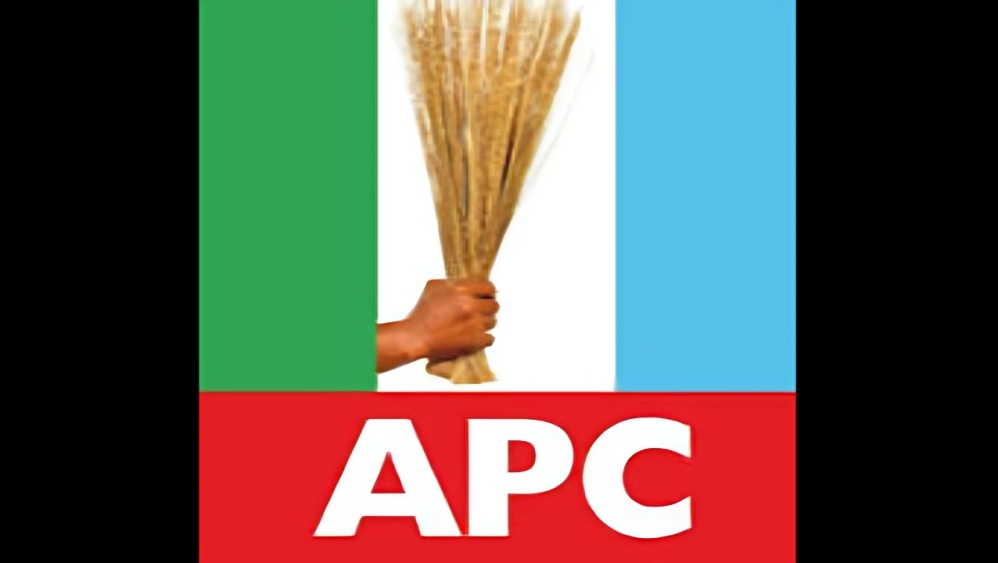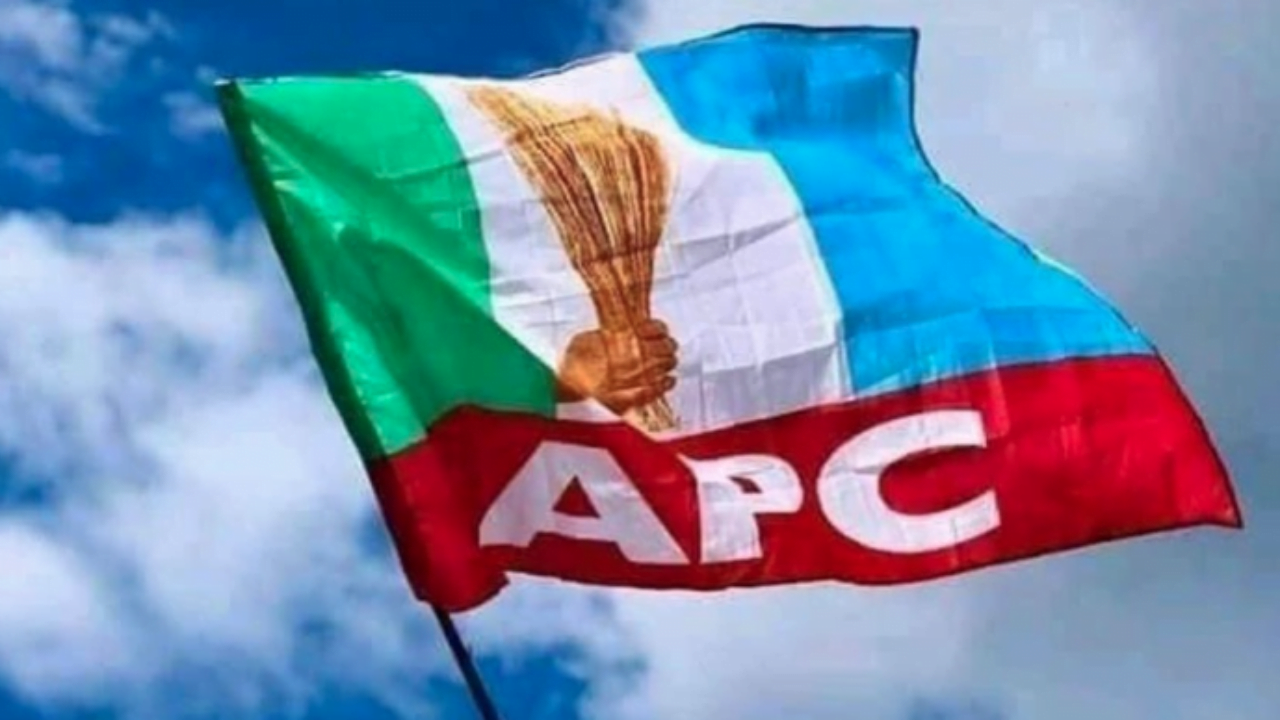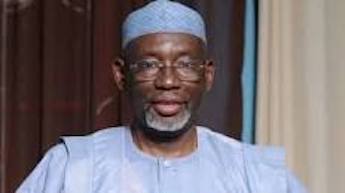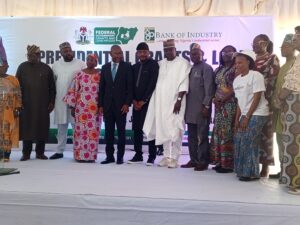POLITICS
Foreign Loans and Nigeria’s Critical Assets as Collateral

By Kadiri Abdulrahman
In recent times the news of some African countries losing some of their critical assets, and even their sovereignty to China due to heavy indebtedness has dominated social discourse. The rumour generated widespread interest in Nigeria due to the country’s growing interest in Chinese loans.
A couple of weeks ago, widespread media reports indicated that East African country, Uganda had to surrender one of its national assets, the Entebbe International Airport, to China’s EXIM Bank for defaulting on its loan repayments.
It was reported that Chinese officials had rejected Uganda’s request to re-negotiate certain “toxic clauses” in the 200 million dollars loan issued in 2015, for the purpose of upgrading and refurbishing the Entebbe airport.
This news spread quickly over social media and was reported by several mainstream media outlets. The Ugandan and Chinese governments, however, debunked the allegation.
Stakeholders within the Nigerian financial and economic sectors continue to express worry over the country’s seeming unending indebtedness to China.
Some stakeholders raised concerns that the nature of the loan agreements with China was capable of compromising the country’s sovereignty.
In May 2020, the House of Representatives mandated some of its committees to investigate all China-Nigeria loan agreements, to ascertain the viability of the facilities, then regularise and renegotiate them when necessary.
Of particular interest was a sovereign guarantee clause in the agreements, which stakeholders fear see Nigeria sign away its sovereignty in the event of a payment default.
However, Nigeria’s transportation minister, Rotimi Amaechi, explained that the purpose of the clause was to allow China pursue paths, including arbitration, to settle possible disputes over payments.
“They are saying; if you are not able to pay, do not stop us from taking back those items that will help us recover our funds.
“And it is a standard clause, whether it’s with America you signed it or with Britain or any country, because they want to know that they can recover their money,” Amaechi said.
Findings reveal that the of country’s total debt stock of 92.9 billion dollars, the foreign component of it is 37.9 billion dollars, which includes debts from multilateral sources, bilateral sources, commercial loans and promissory notes.
Loans from China fall under bilateral loans and, together with loans from other sources like France, Japan, India and Germany totals 4.3 billion dollars; or 11.59 per cent of the total debt stock.
The Chinese component of the loans presently stands at 3.59 billion dollars, constituting 9.47 per cent of the country’s total foreign debt stock.
This showed that China is not really the highest source of borrowing, or the major source of funding for the Nigerian government.
According to Patience Oniha, Director-General of the Debt Management Office ( DMO), loans from China are mainly concessional loans with interest rates of 2.50 per cent per annum, tenor of 20 years and a grace period of seven years.
Oniha also clarified that no national asset was tagged as collateral for the loans.
“Nigeria’s total foreign debt stock as at Sept. 30 was 37.9 billion dollars, this figure comprised the external debt stock of the Federal Government, 36 state governments and the Federal Capital Territory.
“But total loans from China stands at 3.59 billion dollars, which is 9.47 per cent of the total external debt. The loans did not require any national asset as collateral; they were largely concessional,’’ she said.
She explained that before foreign loans were contracted, some sensitive steps were taken by multiple institutions of government to ensure that they were beneficial to the nation.
“Before any foreign loan is contracted, including the issuance of Eurobond, they are approved by the Federal Executive Council and thereafter, the National Assembly.
“An important and extremely critical step is that the loan agreements are approved by the Federal Ministry of Justice.
“An opinion is issued by the Attorney-General of the Federation and Minister of Justice before the agreements are signed.
“Several measures which operate seamlessly have been put in place to ensure that data on debt are available and that debt is serviced as at when due. Provisions are made explicitly for debt service in the annual budgets,’’ she said.
Oniha explained that the loans agreements provided a number of steps to take to resolve dispute when they arise.
“The first action is that the parties should resolve it within themselves and if that fails, they go to arbitration.
“In other words, a lender, in this case, China, would not just pounce on an asset at the first sign of a dispute, including defaults,” she said.
She explained that the DMO maintained proper records of debts, provided projections for debt service and processed the actual payments for debt service.
She added that the low interest rate offered by the Chinese reduced the interest cost to government while the long tenor enabled repayment of the principal sum of the loans over many years.
Some stakeholders, however, condemned the seeming, perpetual dependence on loans by the government to fund infrastructure as well as budget deficits.
An economist, Mr Tope Fasua, advised the Federal Government to improve on the budgeting system to check deficit financing and make the annual budgets more impactful.
Fasua said that though borrowing had become imperative due to prevailing circumstances, especially with the advent of COVID-19, such borrowings should be judiciously utilised to improve infrastructure that can grow the economy.
“Unfortunately, we have found ourselves in a difficult scenario due to the COVID-19 pandemic and falling crude oil prices and we just have to go borrowing like most other countries in the world.
“Government should ensure that our borrowings are effectively utilised for optimum economic impact,” he said.
However, with the country’s National debt in relation to Gross Domestic Product (GDP) at 35.51 per cent, some analysts opine that the debt situation is still within reasonable limits.
According to a study conducted by the World Bank, a debt to GDP ratio that exceeds 77 per cent for an extended period of time may result in an adverse impact on economic growth.
This implies that the Nigerian debt situation is not really alarming when compared to the country’s GDP.
Chief Executive Officer of the National Economic Summit Group (NESG), Mr Laoye Jaiyeola, said that though Nigeria’s debt to GDP ratio could be considered low, the revenue that went into debt servicing was still on the high side.
Jaiyeola opined that expending between 25 per cent and 30 per cent of national revenue on debt servicing, as presently done by the Nigerian government, was not sustainable.
He urged the Federal Government to adopt tough but necessary policy choices in order to improve on its revenue and reduce its dependence on foreign and local loans to fund budget deficit.
“We should all be worried about the rising debt profile of the country.
“Some people say that the debt to GDP ratio is still low. It could be low, but servicing debt is still a challenge,” he said.
He suggested a drastic cut in running cost of governance, reduction in recurrent expenditure, as well as removal of subsidies in electricity and petroleum products, as a way of reducing the debt burden.
Kadiri Abdulrahman is of the News Agency of Nigeria (NAN)
POLITICS
Ozekhome Kicks Against Creation of Additional States

By Mike Odiakose, Abuja
Constitutional and human rights lawyer, Prof Mike Ozekhome, SAN, has kicked against the agitation for the creation of additional states.The legal luminary maintained that most of the states that make up the Federal Republic of Nigeria, today are not viable and as such saw no reason why more states should be created in the country.
Ozekhome, in an interview, blamed the conditions of the states on the “skewed federal template” being operated in form of a unitary system of government and called for a complete overhaul of the 1999 Constitution. According to him, the present Constitution is not only cumbersome with the center vested with too much powers and responsibilities but was a product of the military class which has ruled Nigeria for quite some times.He spoke at a “Walk for Wellness” campaign embarked upon by the Mike Ozekhome Chambers (MOC) in Abuja.”Some of us are now saying rather than create more states we should collapse the present structure into about six geopolitical zones, which should serve as regional government.”A parliamentary system of government operating on regional bases will be more beneficial to the people because it will catalyze development and competitiveness among the regions. Right now, no state is competing, all of them just go to Abuja at the end of the month to take from the federation account to share”, he said.The senior lawyer lamented that Nigeria has become a sharing country which is not baking anything because they don’t care or even know how to bake anything.According to him, while Nasarawa has the highest mineral deposits of over 36 items, followed by Plateau with 28 items with Sokoto and Kaduna States in that order, the entire country still rely on crude oil “which is fast losing its value across the world.”I will suggest that if we are to retain the state structure, we should retain the states as a federating units, thus having two tiers of government” he said, leaving local government to the states.Adding: “the only state I will have said should be created right now should be in the South East, to bring them to equity with other geopolitical zones in the country.”POLITICS
2027: APC Kicks As Opposition Backs Single Day Polls

A major political storm is brewing over a fresh proposal to amend the 1999 Constitution to allow all elections in Nigeria to be conducted on the same day in 2027.
While leading opposition parties — the Peoples Democratic Party, Labour Party, African Democratic Congress, and New Nigeria People’s Party — have thrown their weight behind the move, the ruling All Progressives Congress has rejected it, warning of dire consequences.
The proposal, spearheaded by the House of Representatives Committee on Constitution Review, chaired by Deputy Speaker Benjamin Kalu, is being considered as part of broader constitutional amendments following zonal consultations across the six geo-political zones.
If passed, the amendment would mandate the Independent National Electoral Commission (INEC) to conduct presidential, governorship, National Assembly, and state assembly polls in a single day — a move touted to drastically cut costs and reduce post-election bandwagon effects.
Backing the initiative, the National Publicity Secretary of the NNPP, Ladipo Johnson, argued that same-day polls would be both cost-effective and efficient.
He said, “The costs of elections are too high, just like those of governance. And any reasonable thing to reduce the costs should be looked at. Even for the political parties, it is cheaper and more efficient for them to do their elections in one day.”
On concerns over rigging, Johnson dismissed fears, saying, “If these people are going to rig, they will rig. But if you have all your elections in one day, all your candidates are able to pool together resources so that the polling unit is properly manned.”
The Labour Party also gave its full backing. National Publicity Secretary, Obiora Ifoh, said the proposal would eliminate staggered elections and reduce bandwagon effects.
He noted, “The Labour Party aligns itself with the position that all elections should hold the same day… It’s also going to help reduce the cost of funding elections, logistics, and bandwagon effect where some voters, after knowing who wins the presidential poll, will start moving towards that direction in subsequent elections.”
For the PDP, Deputy National Youth Leader, Timothy Osadolor, welcomed the idea but warned against manipulation.
“It is a welcome development if it is done with sincerity, clear intent and purpose. The truth is that the bogus amount that the government spends on elections is mind-boggling. There’s no rational reason why we spend over $350 billion conducting elections in this country, where at the end of the day, you don’t get value for the outcome of such votes,” he said.
The ADC, through its National Publicity Secretary, Bolaji Abdullahi, also declared support but with a caveat.
“Our support for doing the election on the same day is contingent on INEC logistics being top notch. At the moment, we don’t see any evidence that INEC is committed to improving its logistics,” he said.
But not all stakeholders are convinced. The All Progressives Grand Alliance (APGA) warned that the logistics could be chaotic.
APGA spokesman, Ejimofor Okpara, declared that “As laudable as it sounds, we believe it will be chaotic. Our elections, as they are, already appear too cumbersome, logistics-wise, for INEC. One can only imagine the outlook if these major elections are held in one day.”
Lawmakers are also split. North-West caucus leader, Sada Soli (APC, Katsina), backed the bill, describing it as “an idea whose time has come.”
But Osun lawmaker, Oluwole Oke, disagreed, insisting, “It’s INEC’s prerogative to decide which date to conduct elections.”
Lagos lawmaker, Babajimi Benson, added, “I strongly believe that this decision should be included only in the INEC Act so as to make amendments easy… This (proposed) amendment in the constitution may make it very difficult in the future.”
The APC formally opposed the proposal, describing staggered elections as the better option.
Deputy National Organising Secretary, Nze Chidi Duru, warned, “To hold all elections on the same day puts a lot of pressure on the institution that is governing elections in Nigeria.
“You’re going to be holding elections at the State Assembly, House of Reps, Senate, governors, and the President. After those four years, INEC now sits back and literally does nothing.”
He added that staggered polls would keep INEC “active year-round” and reduce the risk of system collapse.
Also reacting, a former Director of Voter Education at INEC, Oluwole Osaze-Uzzi, condemned the plan, recalling that a similar attempt in 2003 was rejected by the courts.
“This is not a new idea. They tried this before when we were in INEC, and we actually went to court before the 2002 and 2003 elections. We won the case then,” he said, warning that Nigeria lacked the logistics and literacy levels required for such an exercise.
However, prominent lawyers see merit in the idea.
Senior Advocate of Nigeria, Lekan Ojo, argued: “From the economic perspective, it is a cost-saving measure… But it may be very clumsy. The electoral officers may be overwhelmed and that may lead to a floodgate of litigations.”
Another SAN, Wale Balogun, was more sceptical: “If our experience is anything to go by, then I’m afraid for Nigeria. I don’t think we have the capacity to do so.”
For Adedayo Adedeji (SAN), the move would “drastically reduce the cost of conducting elections,” though he warned of doubts over INEC’s capacity.
Civil society leaders, including Auwal Musa Rafsanjani of the Transition Monitoring Group and Debo Adeniran of the Centre for Accountability and Open Leadership, endorsed the proposal, insisting it would cut costs and make elections more transparent.
Adeniran said, “There is nothing stopping us from conducting all the elections in one day, except for those who are thinking of how to manipulate elections.”
POLITICS
2027: No Vacancy in Aso Rock – APC Chairman

The National Chairman of the All Progressives Congress (APC), Prof. Nentawe Yilwatda has said he is very confident that the opposition parties including the African Democratic Congress (ADC) will fail in their bid to unseat President Bola Ahmed Tinubu in the forthcoming 2027 election.
Yilwatda who was addressing hundreds of supporters of the ruling party under the aegis of the APC league of Professionals, who were on a solidarity visit at the national secretariat of the party on Tuesday in Abuja, said the gains recorded already under the Renewed Hope Agenda of the President Tinubu led administration as basis for his position.
He further assured that the party would ensure that the entire candidates of the party contesting for governorship, National and State Assemblies seats across the country were victorious.
The Plateau state born academic who described himself as the bridge between the old and the young gave example with the students loan, and several other empowerment programmes being undertaken by the President Tinubu led administration that has impacted on the lives of Nigerians positively.
“The child of the poorest man in Nigeria can now go to school to the peak without borrowing from anywhere. The government has made provision for that. This is the only time we’ve had that in the history of Nigeria. Government has dropped N1.5 billion Naira in Bank of Agriculture (BOA) to support young men that want to go into agriculture.
“Never before, never before, never before have we had this opportunity. We have the youths fund being given for the youths. Never before has any government done this. And I can tell you that the opportunity for the young people is right under our President.
What I can show you first is a thank you for this support, a thank you for standing by our party, a thank you for believing in this party.
“Our manifesto targets people like you. The Renew Hope Agenda targets people like you. And I look forward to working with you to ensure that 2027 will deliver the President, will deliver the Governors, will deliver the Senators, House of Assemblies and House of Representatives members.”
Earlier in his address, leader of the group and the pioneer Secretary of the Bayelsa state chapter of the APC, Hon. Marlin Daniel said was confident that Prof. Yilwatda will take the party to the next level of development.
Daniel also expressed gratitude to President Tinubu and the Sen. Hope Uzodinma led Progressives Governors Forum (PGF) over the choice of Yilwatda as the National Chairman of the party.
He expressed optimism that the Chairman will deliver candidates of the party at the coming elections given his experience as a technocrat and politician of several years standing.

























